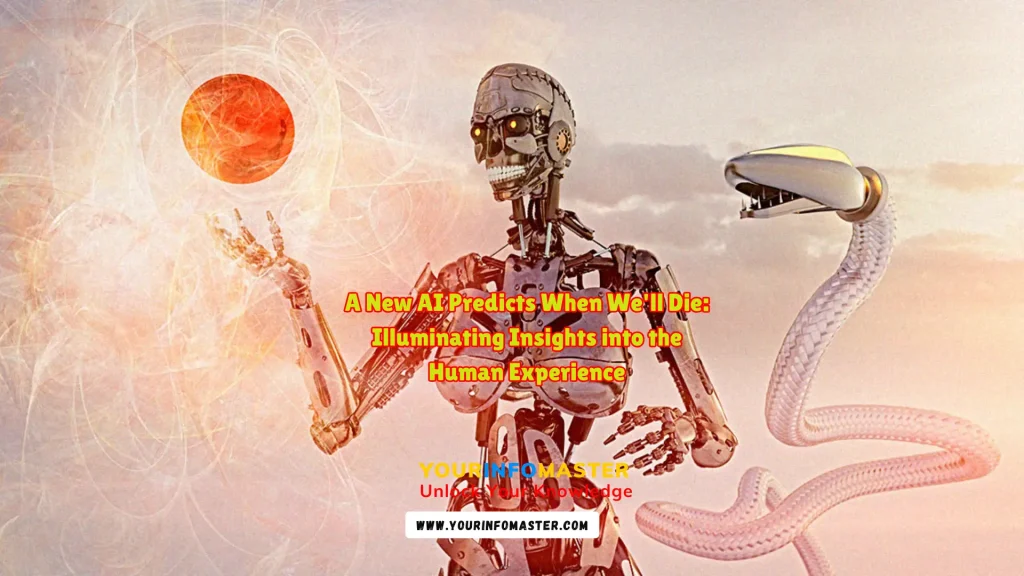Unveiling the Intriguing Intersection of Mortality Prediction Technology and Reflections on Life
Would you like to know when you’re going to die?
A group of Danish and American social scientists has created a buzz by announcing the use of artificial intelligence (AI) and a massive dataset to predict a person’s likelihood of death within the next four years with startling accuracy. The research, titled “Using Sequences of Life-Events to Predict Human Lives,” published in Nature Computational Science in December, became a viral sensation, earning the moniker of a super-creepy AI “doom calculator.”
The project, although initially framed as an attention-grabbing concept, delves deeper into the intersection of AI and social science, raising profound questions about life rather than focusing solely on mortality. It challenges the conventional narrative surrounding the capabilities of AI and prompts reflection on how humans live.
Also Read: IMF Warns: Artificial Intelligence Threatens Almost 40% of Jobs Globally
AI and Human Life Events: Unraveling Patterns
The project’s foundation lies in the observation that AI, particularly in large language models, transforms words into numeric tokens, enabling the identification of patterns and correlations that might go unnoticed by humans. Instead of text, the researchers tokenized extensive data about everyday life from 2008 to 2015. This approach sought to explore correlations in high-dimensional event sequences, treating each life as a sequence of words or events.
The researchers utilized data meticulously collected by Statistics Denmark, a well-funded state agency known for its detailed and organized datasets. The dataset covered various aspects of individuals’ lives, including medical conditions, education, income, and even unusual events like “duck strikes,” showcasing the granularity of the information.
As the data was converted into tokens, the AI model discerned patterns, teaching itself to recognize distinctions between concepts such as income, health, and education. It categorized and sorted various aspects of life, creating a comprehensive map of the seemingly chaotic and random events in a modern Danish person’s life.
Privacy and Trust: The Danish Advantage
The project adhered to the European Union’s stringent digital privacy laws, ensuring compliance and anonymization of data. The researchers highlighted the importance of trust in government and the existence of well-organized datasets in Denmark as crucial factors that enabled the project’s success.
Implications for the United States: Trust and Data Governance
The article emphasizes the challenges the United States might face in undertaking similar projects due to a lack of trust in government institutions and a less clear digital privacy regime. The trust in government exhibited by Denmark and other countries with rich datasets could provide them with a significant advantage in utilizing AI for national-level decision-making and resource allocation.
Existential Implications: The Boredom of Predictable Lives
Beyond the sensational aspects of predicting mortality, the research offers an existential perspective, revealing that human lives, even in a rich and homogenous country like Denmark, are surprisingly predictable. The AI’s ability to map the routines of people’s lives led to the realization that, despite individual variations, people tend to follow similar patterns in their daily activities.
This revelation challenges the notion of human exceptionalism, suggesting that AI’s ability to recognize patterns and probabilities indicates that human behavior is replicable and predictable. The findings prompt contemplation on whether AI’s increasing ability to predict future outcomes will influence human decision-making or inspire individuals to seek new directions and embrace change.
In the face of advancing AI capabilities, the article concludes with a quote from Ophelia: “We know what we are, but not what we may be,” emphasizing the potential for change and the unpredictable nature of the human journey in the era of AI.

